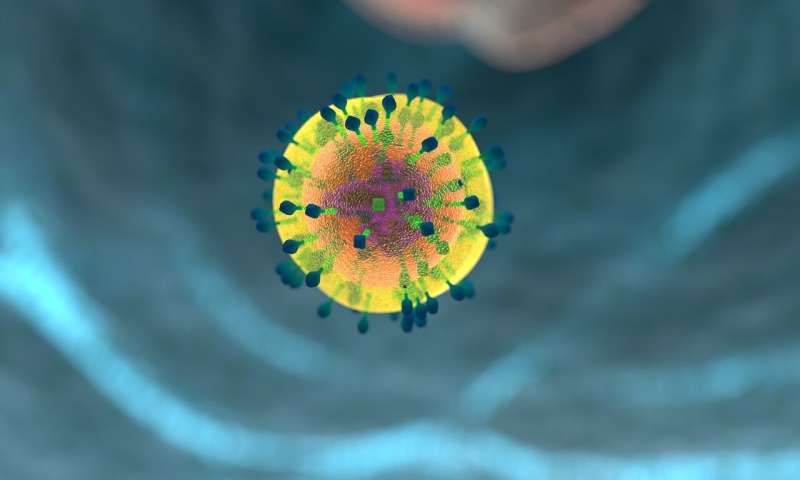New study raises prospect of ‘fine-tuning’ immune response through individual T-cells

Scientists at Cardiff University have uncovered a way of “fine-tuning” the body’s immune response to viral infections at the level of individual T-cells.
T-cells play a crucial role in how the body responds to infection—and have become a key focus for scientists during the COVID-19 pandemic as they hunt for ways to kill the SARS-CoV-2 virus.
In this study, the researchers uncovered more about how these cells and their receptors work, which could help vaccine designers to perfect the immune response.
Their findings are published in PNAS.
Lead author Dr. Mathew Clement, a research associate from Cardiff University’s School of Medicine, said: “Our study suggests the immune system can be specifically adjusted—or fine-tuned—at the level of individual T-cells to produce the most effective immune response possible—but while crucially avoiding any damage to the body, a process known as autoimmunity.
“We have all seen how vital vaccines are in the fight against COVID-19—our work could help in efforts to create the most effective possible T-cell-mediated vaccine which offers just the right strength of immune response; not too weak that it is rendered ineffective but also not too strong that it hurts the body.”
The study highlights the role of a protein called CD8, which is a T-cell co-receptor vital for controlling an effective immune response to an invading pathogen.
The research team’s aim was to work out a way of making T-cells effective against a range of pathogens and viruses via CD8 but while avoiding causing damage to the host. Essentially, the more types of targets a T-cell can recognize and react against, the more risk there is of autoimmunity.
In this study, the team describe a mechanism that resolves this conundrum by showing how CD8 can allow individual T-cells to focus on specific targets without driving autoimmunity.
Dr. Hugo van den Berg, a senior author on the study from Warwick University’s Mathematics institute, said the data shows for the first time “a phenomenon that was predicted based on mathematical calculations.”
The researchers employed different disease targets in the lab and modified CD8 while monitoring the immune responses produced. Tinkering with the CD8 receptor allowed them to “fine-tune” the immune response against different disease targets—without altering the structural integrity of this critical receptor.
“Our study suggests that the immune system can be specifically adjusted to operate at the level of individual T-cells to allow the T-cell to do its job and kill invading pathogens while safeguarding the host in the face of an ongoing immune response,” said Dr. Clement.
Source: Read Full Article
